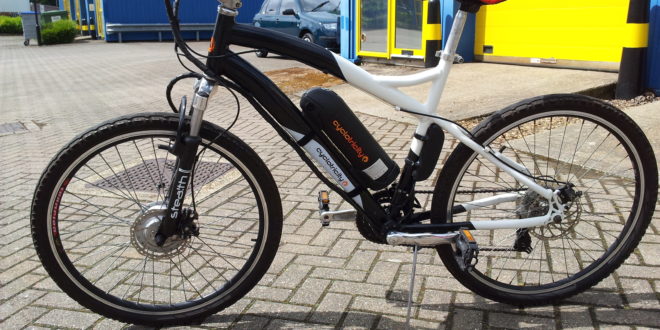Late last month the European Commission dropped a bombshell – effective immediately, e-bike owners would need motor-vehicle insurance to be street legal. That was a strict, legalistic reading of the Commission’s decision that all forms of motorised vehicles now “fall within the scope of the [EU Motor Vehicle Insurance] Directive as interpreted by the Court of Justice in its case-law."
The case law referred to is Damijan Vnuk v Zavarovalnica Triglav, commonly shortened to just “Vnuk”.
Vnuk is an unfortunate Slovenian farm worker who was knocked from a ladder by a reversing tractor in 2007. Triglav was driving an uninsured tractor. The case was originally heard in Slovenia, but then taken up in the Court of Justice of the European Union. In September 2014 the ECJ ruled that the requirement in the EU Motor Insurance Directive, devised in 1972, was for vehicles to be insured for any use consistent with the normal function of that vehicle. This means the incident in Slovenia should have been covered by compulsory motor vehicle insurance.
The European court decided that the regulation “applies to the use of vehicles, whether as a means of transport or as machines, in any area, both public and private, in which risks inherent in the use of vehicles may arise, whether those vehicles are moving or not.”
Further, the ECJ stated that: “Insurance obligation in respect of motor vehicles set out in the EU Motor Insurance Directives is now to be interpreted as extending to ‘any use of a vehicle consistent with the normal function of that vehicle’."
The court ruled that off-road vehicles, such as tractors and racing cars, have to be insured even if they never drive on a public highway. This was then extended to any motor vehicles that could potentially travel on the public highway, including Segways, hover boards, ride-on lawn-mowers and, yes, e-bikes.
Last month the European Cyclists’ Federation said: "With this text, the European Commission is trying to criminalize millions of current power-assisted bicycle users, almost all of whom have some kind of other insurance and has effectively banned pedelec use without insurance usually reserved for motor vehicles."
The cycle industry has long been aware of the potential consequences of e-bikes falling “within the scope of the [Motor Vehicle Insurance] Directive” and has been lobbying against e-bikes being so included. This lobbying will now have to be intensified before the European Commission’s decision is ratified by the European Parliament.
The decision was made by the EU’s financial services directorate, which has little interest in e-bikes per se. The directorate had to decide what was a “motor vehicle” and it included almost anything road-going with a motor on it. The cycle industry has been lobbying that pedal-assist e-bikes do not rely on the motor alone so should not be classified as “motor vehicles”. The financial services directorate thought differently – in effect, civil servants saw only the motor.
Cycle industry leaders now fear that other legislatures around the world will harmonise with the EU and also classify e-bikes as motor vehicles thereby requiring their riders to buy motor-vehicle insurance, and possibly having to wear helmets and fit number plates, too.
Kevin Mayne of the Cycling Industry Club, the industrial arm of the European Cyclists’ Federation, urged local retailers, distributors, company branches and other e-bike suppliers to gear up for action. He said “each MEP and each member state needs to hear about the damage this regulation will do, and they need to hear it from the businesses that will be affected."
He added that the “formal clarification is currently only a proposal” but that the “civil servants didn’t give much confidence in their decision-making by publishing an opinion that many of these devices were currently already included in the scope of compulsory motor insurance, a statement that has not been tested in court, but suggests all current users and owners of these devices need insurance now.”
E-bikes, he said, had been “caught up in a piece of decision-making that shows little or no understanding of its impacts.”
The cost of motor-vehicle insurance and the possibility of being made to wear helmets and sport number plates would be “a huge burden for an emerging market,” warned Mayne, “and we know that in most countries cycling is not mainstream enough for consumers to ignore the barriers. It removes one of the most important competitive advantages pedelecs have over scooters and mopeds, their freedom and flexibility.”
The civil servants at the EU financial services directorate have told the European Cyclists’ Federation that “they find it easiest to take the recent EU court ruling and just pass it on as widely as possible,” said Mayne.
“When challenged about the damage this could do they either imply ‘nothing to do with us’ or ‘member states can deal with it by exemptions.’ This is the behaviour of a very powerful regulatory directorate whose main interest is the big financial institutions and national governments.”
The European Parliament has to approve the changes, said Mayne, but the most important power will be national governments.
“If for some reason we don’t get the proposal overturned collectively by the European Parliament or by member states the good news is that every national government has the power to exempt [e-bikes] from these regulations.”
But Mayne stressed that “we will need every national government to know the damage that the EU is about to do to the e-bike market.”
 BikeBiz Bicycle and cycling retail news
BikeBiz Bicycle and cycling retail news




